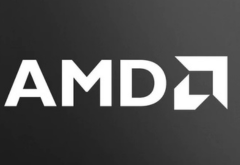In 2023, India continued to solidify its position as the third largest tech start-up ecosystem globally, with over 950 new tech start-ups founded during that year, contributing to a total of more than 31,000 tech start-ups in the last decade. The cumulative funding for these tech start-ups from 2019 to 2023 has exceeded USD 70 billion. Despite various challenges faced, such as valuation issues, limited IPOs, regulatory changes, and macroeconomic and geopolitical trends, Indian tech start-ups remained committed to improving their business fundamentals, profitability, and revenue pipeline through effective sales strategies. According to the nasscom-Zinnov Tech Start-up Survey-2023, around 60% of start-up founders reported increased revenue and profitability in 2023. Moreover, a significant number of unfunded tech start-up founders anticipate higher revenues in 2024 compared to their funded counterparts.The utilization of Deep technologies is gaining prominence, with Indian start-ups leveraging DeepTech to enhance organizational efficiency (59% of surveyed tech start-ups), reduce operational costs (52% of surveyed tech start-ups), and automate internal operations (41% of surveyed tech start-ups). The democratization of Tech in 2023 has also led Indian tech start-ups to expand into Tier II and Tier III locations, with the share of tech start-ups established in emerging hubs rising to 40% in 2023, showcasing the depth of India’s start-up proliferation. Additionally, business model innovations in core sectors, such as Automotive, Industrial, and Manufacturing, have witnessed improvement, with an increase in the share of funding compared to other sectors.
Despite reports of layoffs dominating the start-up sector in 2023, a survey of over 100 start-up founders revealed that over 65% of them engaged in moderate hiring during the same year.
Looking ahead to 2024, the Indian start-up landscape is expected to continue facing opportunities and risks within the global environment. Overcoming challenges, the ecosystem anticipates improvements in funding, forthcoming IPOs, and innovation across disruptive technologies and key sectors. As AI acceleration takes center stage, a strategic focus on developing the DeepTech ecosystem is deemed crucial. This involves identifying key sectors for DeepTech investment, fostering an integrated approach for innovation, market connections, and support in areas like testing, patent filing, certifications, and training. Furthermore, prioritizing domestic capital through initiatives that nurture innovation, alongside co-investment programs, will strengthen domestic VCs. Additionally, easing regulatory compliance and adopting a pro-innovation, risk-based approach to AI regulation are seen as essential steps for the industry’s progress.
 Latest Technology News Today – Get Latest Information Technology Updates and Services Latest Technology News Today – Get Latest Information Technology Updates and Services
Latest Technology News Today – Get Latest Information Technology Updates and Services Latest Technology News Today – Get Latest Information Technology Updates and Services 









